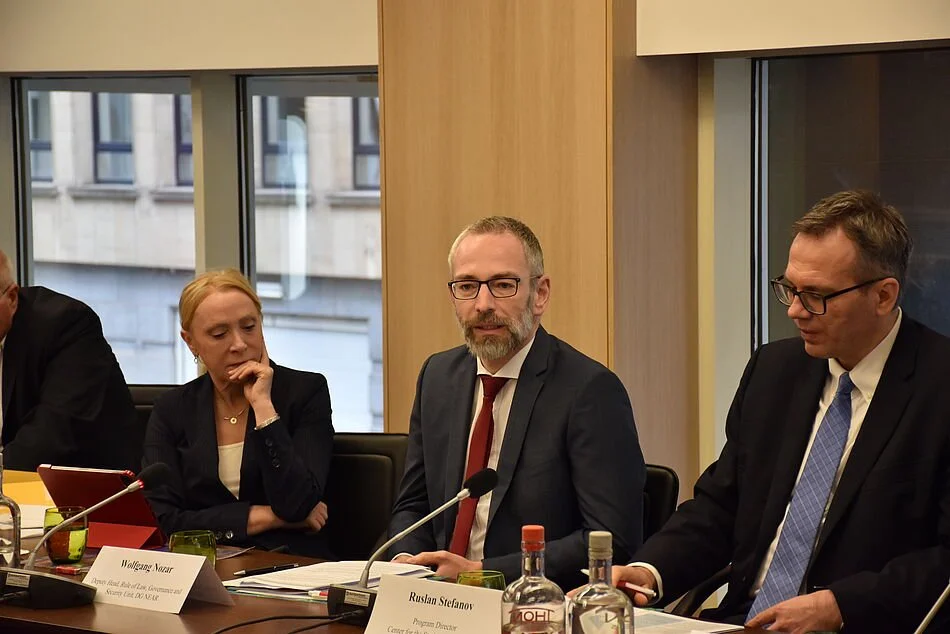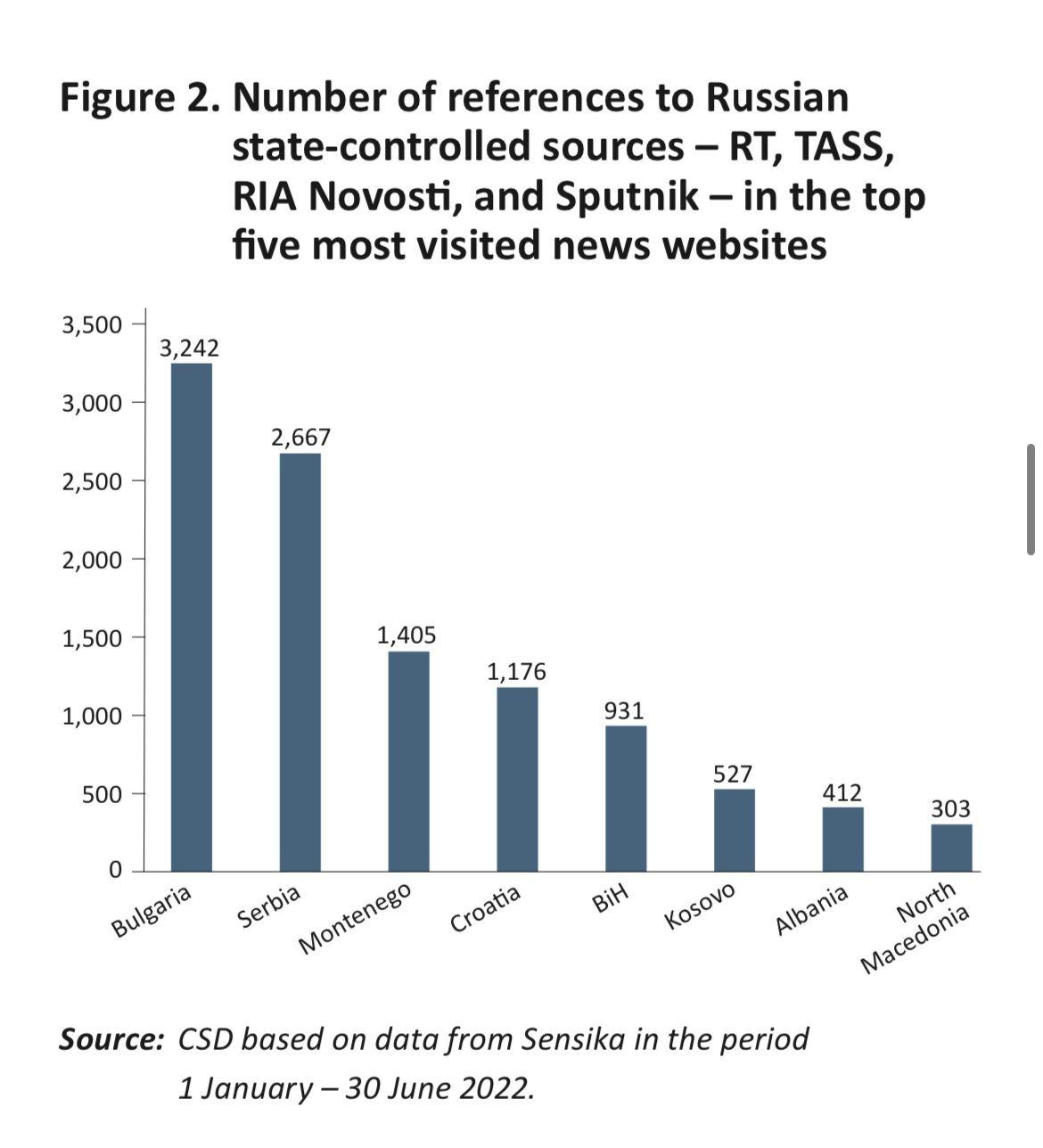Democracy that delivers: Strategic re-engagement with the Western Balkans Roundtable
BFMI participated in a policy roundtable titled “Democracy that delivers: Strategic re-engagement with the Western Balkans,” hosted by the Center for the Study of Democracy (CSD) in partnership with EURACTIV Bulgaria. At the event, the CSD presented the findings of its recent policy paper on “Illicit Financial Flows and Disinformation in Southeast Europe,” which looks at the authoritarian influence and disinformation in the media, particularly from Russia.
According to the CSD's report, Southeast Europe is among the most vulnerable targets in the ongoing hybrid war waged by the Kremlin against the European Union and the democratic West. Illicit finance and disinformation are two of the most powerful tools employed by Russia in the region. A significant portion of media outlets in the Balkans are controlled by ruling elites and oligarchic networks whose economic and political interests are often linked to Russia. As a result, many of these outlets tend to spread pro-Russian narratives and disinformation.
Participating in the roundtable, BFMI Director Antoinette Nikolova stated that “pro-Russian disinformation goes hand in hand with pro-government disinformation” used by state actors to manipulate public opinion. This is most evident in Serbia, where outlets with ties to the government of President Aleksandar Vučić regularly spread pro-Russian and anti-Western narratives
BFMI is particularly concerned about the media environment in Serbia due to Russia’s strong presence. Russian bank Sberbank issued an $88 million loan to state-owned Telekom Srbija. Russian propaganda outlets, including Sputnik and Russia Today (RT), are also active in Serbia. RT even opened offices in Belgrade in July 2022 and launched a new Serbian-language regional news channel called ‘RT Balkan.’
The CSD report found that the mainstream outlets in eight Balkan countries were found to be referencing sources from these Russian channels, with Bulgaria and Serbia accounting for over half of all identified references.
The CSD study also found that Russian embassies in the region play a key role in spreading pro-Kremlin narratives on social media, which are often quoted and embedded in news coverage by mainstream media channels. A BFMI report similarly councluded that Russian disinformation is often welcome on mainstream media, where it gains credibility and then further spread across social media channels.
The roundtable concluded that countering Russian disinformation in the region requires addressing media capture in four key areas, namely ownership, advertising, government, and cognitive capture. This can be achieved by taking preventive measures against the production of disinformation, improving transparency in media outlets, limiting media ownership concentration, and reducing reliance on government financing.
To address the challenges of illicit finance and media capture in the Balkans, it is essential to continue democratization and rule of law reforms. Political leaders should be held accountable by the EU for their support of outside authoritarian influence and corrosive capital inflows. Additionally, a new EU approach in the region is needed, which includes the rapid implementation of the European Anti-Money Laundering Authority, strategic investments in the region through EU funds and development aid, and improved enforcement of sanctions and investment screening. These measures will help the Balkans break free from opaque finance and promote greater transparency and accountability.
Participants in the roundtable included:
Goran Georgiev, Senior Analyst at the Economic Program Center for the Study of Democracy
Antoinette Nikolova, Director of the Balkan Free Media Initiative
Wolfgang Nozar, Deputy Directorate-General for Neighbourhood and Enlargement Negotiations (DG NEAR)
Clive Rumbold, Senior Expert at the Western Balkans Division of the European External Action Service, European Commission
David Sandson, U.S. Department of Homeland Security Attaché to U.S. Mission to NATO, Brussels
Ruslan Stefanov, Program Director at the Center for the Study of Democracy
Boyko Todorov, Senior Fellow at the Center for the Study of Democracy


